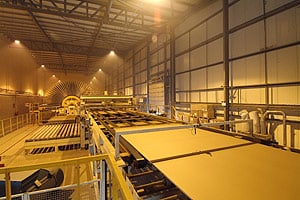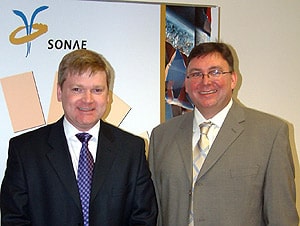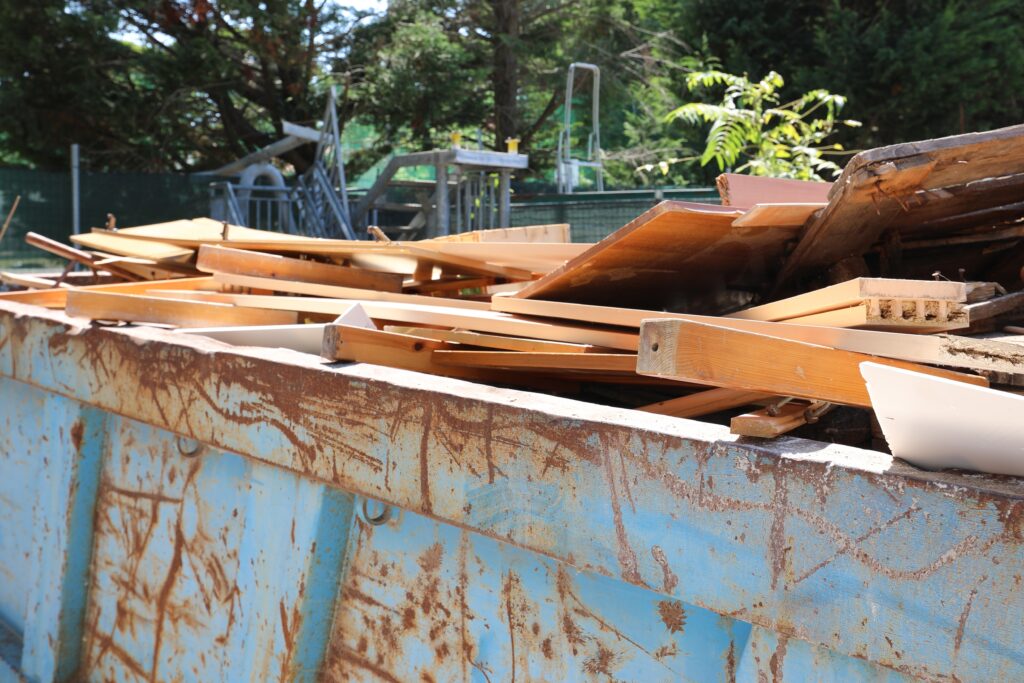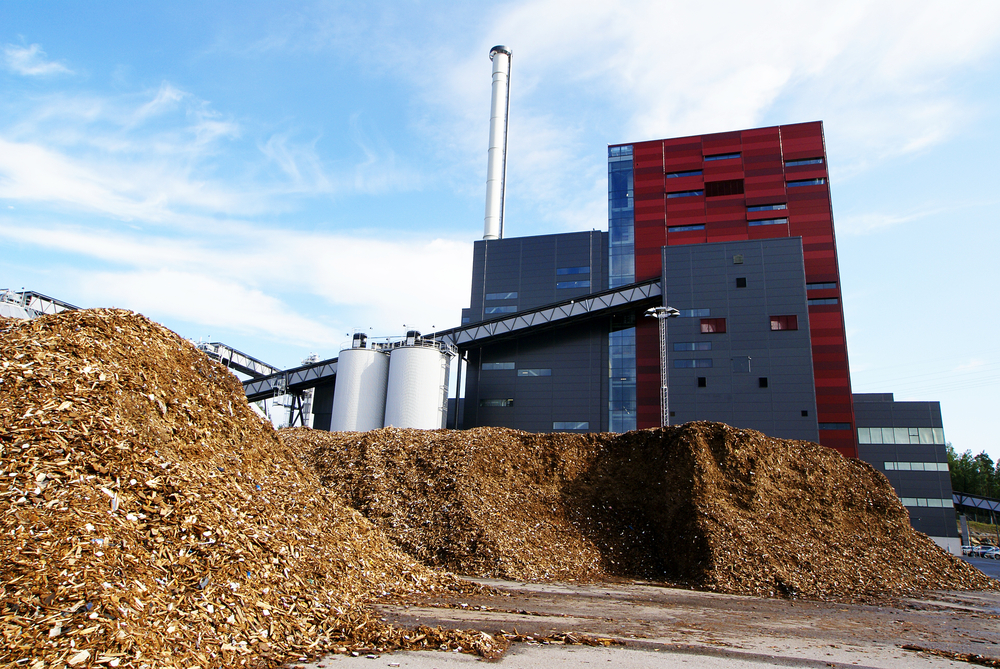The plant, which currently uses 98% recycled wood chip and 2% sawmill waste to make board products for the furniture and construction industries, is to have new cleaning technology installed to help protect existing plant equipment from the contamination found in its waste wood inputs.
 Sonae UK hopes the 6.6m investment will increase the use of recycled wood by about 3,000 tonnes a month at the Knowsley plant |
The investment includes 1.1 million from packaging waste compliance scheme Valpak through the packaging waste recovery note (PRN) system.
The installation of new equipment – including screening machinery, magnetic and eddy current separators – will require a full shut-down at the Merseyside plant from May 25 for eight days, Portuguese-owned Sonae told suppliers and buyers at yesterday's open day. But, deliveries of wood chip will still be taken in while the plant is down, Sonae said.
Sonae bosses hope the “Project Wear” will mean contaminants such as plastic, metal and glass will no longer wear down the inner workings of the five-year-old, 100 million plant.
Managing director Tony Hackney said: “Sonae have recognised that it is vitally important to make some ongoing improvements to our production process. This will allow the process to run more smoothly, increasing both our production and reprocessing capacity and major improvements in environmental controls.”
Erosion
The Knowsley plant was originally designed to take only 60% recycled wood, but increasing this to over 95% by 2004 has meant additional wear and tear. Pipework erosion caused by dust and contaminants was believed to be the primary cause of the explosion that tore through the plant's boiler in 2002 (see letsrecycle.com story).
Project Wear will include the expansion of the plant's hammermill and screening equipment to help cope with oversize waste wood chip, a new 600 cubic metre storage silo and a new steam stack, which at 85 metres high will be over twice the height of the present stack in a bid to improve relations with the local community.
”Sonae have recognised that it is vitally important to make some ongoing improvements to our production process.“
– Tony Hackney, Sonae UK
Of the 6.6 million funding for the plant upgrades, 1.6 million will come from revenue generated by the sale of packaging waste recovery notes (PRNs) to packaging producers under the UK's producer responsibility system.
Producers who are members of compliance scheme Valpak have provided 1.1 million of the new investment. It is hoped that Project Wear will increase Sonae's reprocessing capacity by 12%, with wood use rising by 3,000 tonnes a month at the plant. The UK currently recycles about 56% of wood packaging waste – mostly pallets – with a need to reach a 70% rate by 2008 to meet the requirements of the European Packaging Directive.
Valpak chief executive Steve Gough said: “We are pleased to see that our members' PRN funds are being used in a responsible manner to grow the UK reprocessing infrastructure. It is vital that the PRN market supports reprocessors to ensure this growth, as we face extremely challenging targets moving towards 2008.”
Stoppages
Mr Hackney said it had not been easy to move towards Sonae's aim of using 100% recycled waste wood, but the company has been forced to learn and modify its process. Contaminants in wood had been “very aggressive” on the plant and equipment, he said, leading to plant stoppages and helping to account for a massive 550,000 maintenance bill for the company each month.
Mr Hackney accepted that the plant stoppages had caused considerable problems for suppliers of waste wood, explaining that the Knowsley site's limited storage capacity – the site can store only two weeks' worth of throughput – means stocks soon build up in the event of production interruptions.
 Valpak CEO Steve Gough with Sonae managing director Tony Hackney at yesterday's Knowsley open day |
He said the improvements in cleaning technology would mean the plant would be able to sufficiently clean all input material, and Sonae would be able to increase the plant's 80% efficiency level to match and potentially surpass the 90% level achieved in the Coleraine plant.
Stressed
However, Nigel Graham, deputy managing director at Sonae UK, warned that if Sonae's shut-down coincides with a shut-down at another UK boardmaker, “the UK will be quite stressed going into the summer period”.
Sonae's waste wood suppliers were of the opinion that the temporary closure could cause difficulties for wood recyclers that are heavily dependent on the boardmills as end markets for their material. Geoff Hadfield, new chair of the Wood Recyclers' Association, said it highlighted the importance of diversifying into alternate markets like the production of animal bedding.
Relaunch
Project Wear has come on the back of a major turnaround for Sonae UK in the two years since Mr Hackney joined from North Wales-based boardmaker Kronospan.
The company has relaunched itself in a bid to gain more market confidence in products of a high recycled content, and has been working with suppliers of waste wood to improve its supply chain. March 2005 saw record production levels at Knowsley, and hopes are the moves could mean the plant moving towards profitable status.
Lessons learned at the Knowsley plant is now allowing Sonae to bring up the proportion of recycled wood being used at the company's other UK plant in Coleraine, Northern Ireland, which currently uses about 60% recycled wood.
In a “fiercely competitive” economic climate, Sonae is attempting to turn around multi-million pound losses by diversifying away from its dependence on producing raw board, by producing a wider range of decorative products such as floor panelling.
Mr Hackney said the company is also having to keep an eye on the “threat” posed by the huge potential market for waste wood – biomass. But, he said Sonae had some security in that the biomass market – companies generating energy through burning materials including wood – are currently prioritising timber from sustainable forests as raw material rather than waste wood.








Subscribe for free